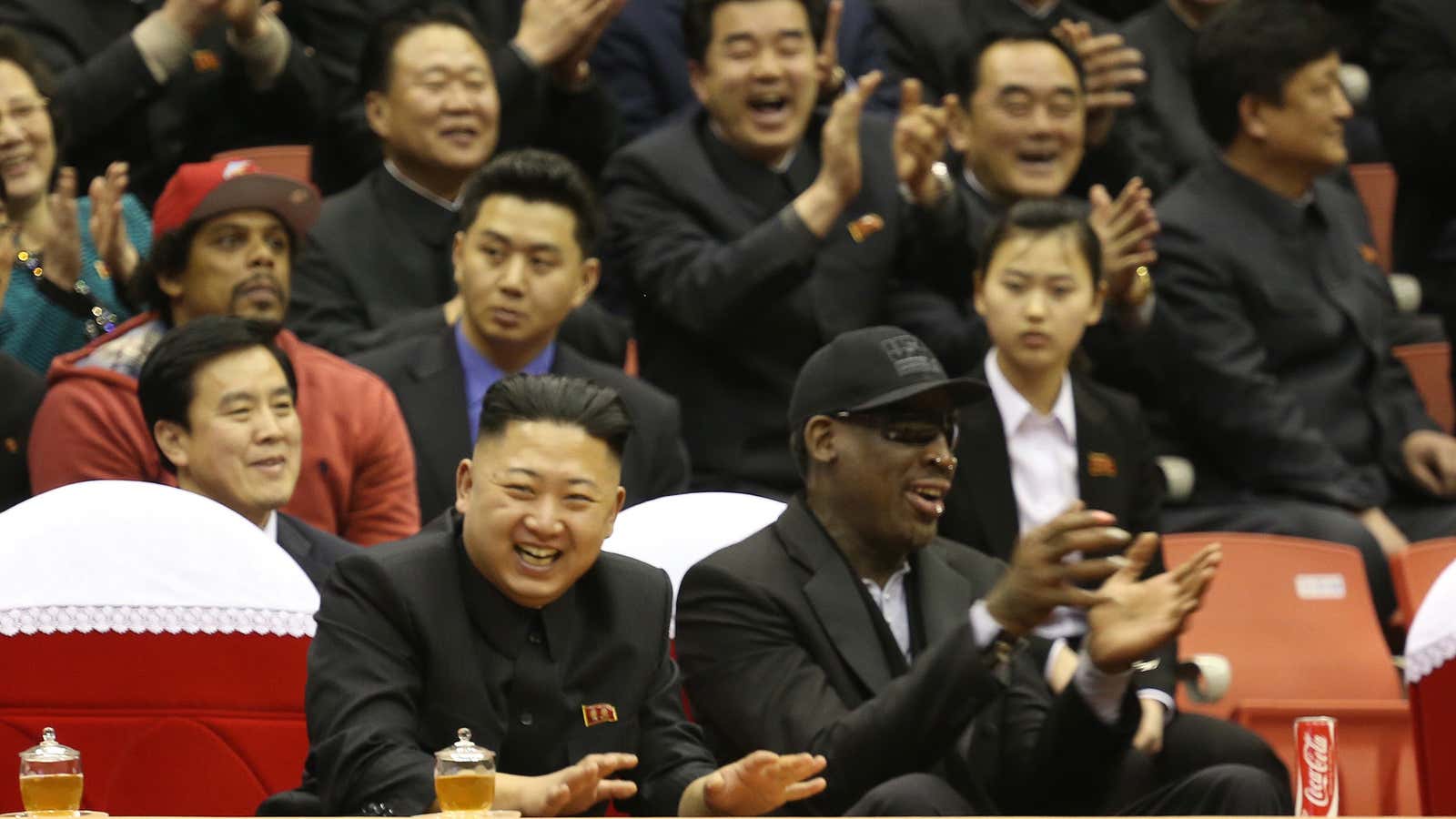North Korea’s diminutive dictator, Kim Jong-un, has been hanging out with former NBA star Dennis Rodman during the latter’s visit to Pyongyang. As part of an event organized by New York-based Vice Media, Kim and Rodman watched North Korean and American teams play basketball (the game was said to end in a diplomatic 110-110 tie), and vowed to be friends for life.
Kim’s show of warmth to an American took place against a backdrop of stiff hostility between Pyongyang and Washington. North Korea conducted a nuclear test on Feb. 12 and called this a warning to the US.
Media and bloggers in China and South Korea interpreted the scene differently. The Chinese broadly guessed Kim was attempting to make peace with the US and suggesting that North Korea was opening up to the world. By contrast, South Korean commentators viewed the event as an attention-seeking scheme to boost Kim’s personality cult both inside and outside his country—perhaps intended to remind Washington, via the association with renowned bad-boy baller Rodman, that Kim is aggressive.
The English language Chinese state-run Global Times alled Kim’s actions “basketball diplomacy,” a reference to the “ping pong diplomacy” that led to a thawing of US-China ties in 1971, when China invited America’s table-tennis team for a visit. The newspaper also opined Kim was conducting a “propaganda campaign to improve the rigid image of the North.”
Chinese netizens commenting on the nation’s Weibo microblog service broadly agreed with that diplomacy angle. “Seeing this American basketball visit recalls that China-USA ice-breaking when China turned an enemy into a friend,” commented (in Chinese. Weibo registration necessary) a Beijinger using the handle “laocailaocai.” Others viewed the Rodman visit as a signal North Korea was distancing itself from China, its longtime strongest ally, by putting on this show of friendship with the US. “Perhaps in 5-10 years’ time, North Korea will make a clean break with China,” mused another Beijinger with the Weibo handle “giantfish.”
In South Korea, the Yonhap News quoted Kim Yong-hyun, a North Korea expert at Seoul’s Dongguk University, as saying the Rodman visit was designed to burnish Kim’s credentials with young North Koreans by showing he was “a friendly leader who likes sports.” The Korea Times opined that Rodman’s rough-cut image—the former Chicago Bulls power forward called his 1996 biography “Bad as I Wanna Be” and pleaded “no contest” to a spousal battery charge in 2008—”dovetails with that of the North under Kim Jong-un,” and warned that world attention on the visit “feeds the personality cult around Kim.”
Yet while North Korea’ neighbors were speculating on the reasons behind Kim’s alliance with Rodman, Pyongyang’s own Korean Central News Agency angled its coverage around how lucky the basketball legend was to meet the ”dear respected Marshal Kim Jong Un.” As KCNA recounted, “Dennis Rodman went up to the auditorium to bow to Kim Jong Un. Warmly welcoming him, Kim Jong Un let him sit next to him.”
